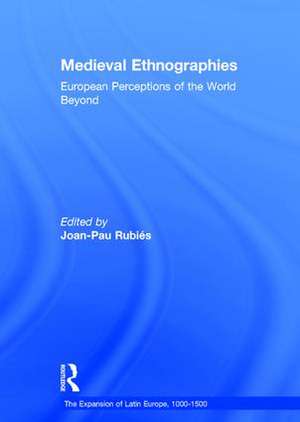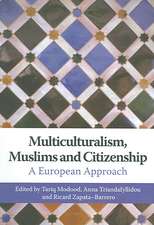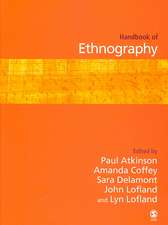Medieval Ethnographies: European Perceptions of the World Beyond: The Expansion of Latin Europe, 1000-1500
Autor Joan-Pau Rubiesen Limba Engleză Hardback – 16 dec 2009
Preț: 1416.27 lei
Preț vechi: 1976.36 lei
-28% Nou
Puncte Express: 2124
Preț estimativ în valută:
271.01€ • 283.67$ • 225.56£
271.01€ • 283.67$ • 225.56£
Carte tipărită la comandă
Livrare economică 31 martie-14 aprilie
Preluare comenzi: 021 569.72.76
Specificații
ISBN-13: 9780754659556
ISBN-10: 0754659550
Pagini: 466
Dimensiuni: 169 x 244 x 32 mm
Greutate: 1.11 kg
Ediția:1
Editura: Taylor & Francis
Colecția Routledge
Seria The Expansion of Latin Europe, 1000-1500
Locul publicării:Oxford, United Kingdom
ISBN-10: 0754659550
Pagini: 466
Dimensiuni: 169 x 244 x 32 mm
Greutate: 1.11 kg
Ediția:1
Editura: Taylor & Francis
Colecția Routledge
Seria The Expansion of Latin Europe, 1000-1500
Locul publicării:Oxford, United Kingdom
Cuprins
Contents: Introduction; Part 1 Contexts and Genres: The outer world in the European Middle Ages, Seymour Phillips; The emergence of a naturalistic and ethnographic paradigm in late medieval travel writing, Joan-Pau Rubiés; Ethnographers in search of an audience, J.K. Hyde. Part 2 Myths: Continental drift: Prester John's progress through the Indies, Bernard Hamilton; The medieval West and the Indian Ocean: an oneiric horizon, Jacques Le Goff; Marco Polo and the pictorial tradition of the marvels of the East, Rudolf Wittkower; The Indian tradition in Western medieval intellectual history, Thomas Hahn. Part 3 Encounters: Gerald's ethnographic achievement, Robert Bartlett; William of Rubruck in the Mongol empire: perception and prejudices, Peter Jackson; Neolithic meets medieval: first encounters in the Canary Islands, David Abulafia; Veni, vidi, vici: some 15th-century eyewitness accounts of travel in the African Atlantic before 1492, Peter Russell; Travel fact and travel fiction in the voyages of Columbus, Valerie I.J. Flint. Part 4 Explaining Cultural Differences: The image of the barbarian in medieval Europe, W.R. Jones; Perceptions of hot climate in medieval cosmography and travel literature, Irina Metzler; Index.
Notă biografică
Dr Joan-Pau Rubiés is Reader in International History at the LSE, UK
Descriere
This anthology of classic articles in the history of medieval ethnographies illustrates the growing sense of cultural confidence in the Latin West, from the twelfth century. What needs emphasizing is the multiplication of original writings over time, their increased circulation, and their authoritative status as a 'scientific' discourse. In conjunction with the important introduction, the studies reprinted here explore the contexts and genres of travel writing, the transformation of enduring myths (ranging from oriental marvels to the virtuous ascetics of India or Prester John), the practical expression of particular encounters from the Mongols to the Atlantic, and the various attempts to explain cultural differences, either through the concept of barbarism, or through geography and climate.



























